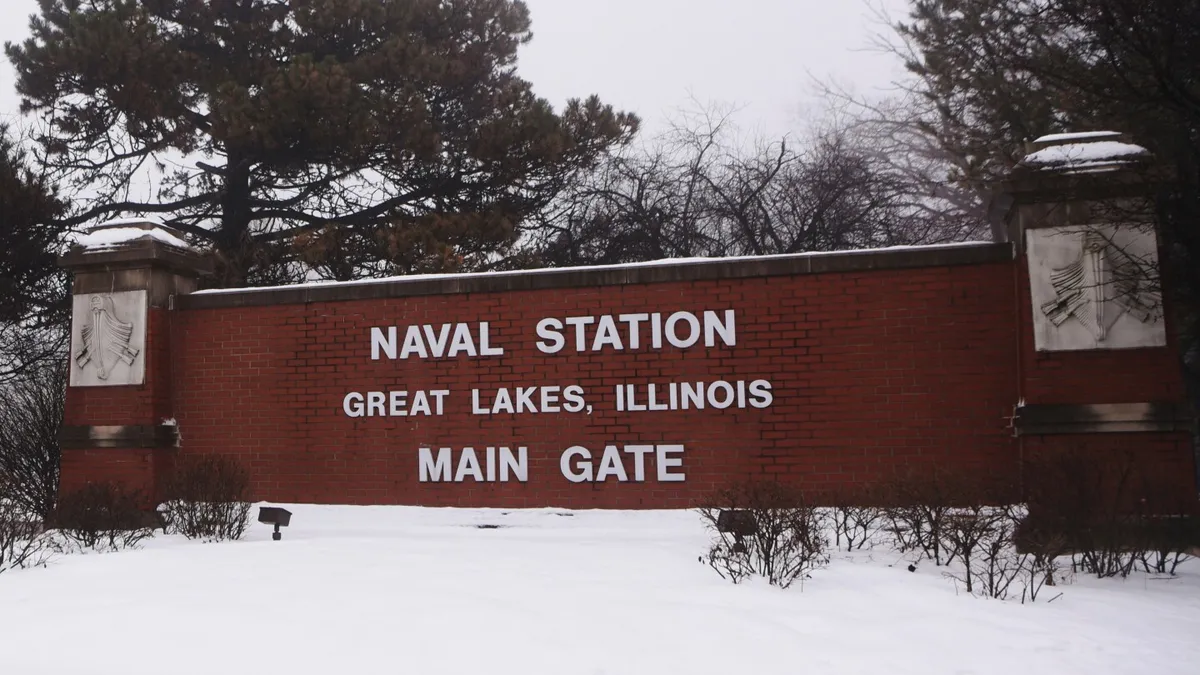
In a recent development, the Trump administration has reached out to a military base located outside of Chicago for assistance with immigration operations. This request offers a glimpse into what an expanded law enforcement crackdown could look like in the nation’s third-largest city. According to Matt Mogle, a spokesperson for Naval Station Great Lakes, the Department of Homeland Security (DHS) has asked the base for “limited support in the form of facilities, infrastructure, and other logistical needs to support DHS operations.” This base is situated approximately 35 miles (56 kilometers) north of Chicago.
The request comes on the heels of the Republican administration's recent deployment of National Guard troops to Washington, D.C., aimed at addressing issues related to crime, immigration, and homelessness. Additionally, troops were deployed to Los Angeles just two months prior. However, details surrounding the administration’s plans for Chicago remain vague. Mogle clarified that no final decisions have been made regarding this support request, and the base has not yet received an official request for a National Guard deployment.
The Chicago Sun-Times was the first to report on this request directed to the Navy base. Meanwhile, the Illinois National Guard has indicated that it has not received any requests pertaining to a mobilization in Chicago, according to Major Dutch Grove, a spokesperson for the Guard. Local officials, including Mayor Brandon Johnson and Illinois Governor JB Pritzker, have voiced strong opposition to such mobilization. They argue that crime rates in Chicago have fallen and the city does not require military intervention. In fact, they are considering legal action to challenge the deployment.
Amidst the uncertainty, many residents of Chicago are feeling anxious about the potential military presence. Former President Barack Obama, a Chicago native, commented on the situation via social media platform X, asserting that “the erosion of basic principles like due process and the expanding use of our military on domestic soil puts the liberties of all Americans at risk.” He emphasized that this issue should concern both Democrats and Republicans.
Governor Pritzker, who has emerged as a possible contender for the 2028 Democratic presidential election, has been highlighting areas of the city where crime has decreased. He told The Associated Press that the presence of military troops could potentially exacerbate tensions rather than alleviate them. “What he’s trying to do is try to inflame something that will cause a problem that he can then point at,” Pritzker remarked, referring to President Donald Trump.
Trump has frequently criticized Chicago, labeling it a “war zone” and “hellhole.” The city’s designation as a sanctuary city has particularly irritated the Trump administration, which used Chicago to launch a nationwide crackdown on immigration shortly after Trump’s second inauguration. In recent days, Pritzker and Trump have exchanged sharp criticisms regarding this issue. In a post on his Truth Social network, Trump claimed, “The people are desperate for me to STOP THE CRIME, something the Democrats aren’t capable of doing.”
While violent crime has decreased significantly in Chicago in recent years, it remains a pressing concern in certain neighborhoods. According to an analysis of federal data by the Rochester Institute of Technology, Chicago had a homicide rate of 21.7 per 100,000 residents in 2024. This figure places Chicago behind seven other major U.S. cities, including St. Louis and New Orleans, which had higher rates. Notably, Chicago reported 573 homicides in 2024, the highest number of any U.S. city that year.
Despite the grim statistics, the first half of 2025 showed a promising decline in violent crime, marking the steepest reduction in over a decade. City data indicates that total violent crime dropped by over 22% when comparing the first six months of 2025 to the same period in 2024. In Illinois, the National Guard consists of around 10,000 members from the Army National Guard and 3,000 from the Air National Guard. While they routinely mobilize from armories across the state, including nearly a dozen in Chicago and surrounding suburbs, these armories are state-owned properties. Therefore, if the federal government seeks to mobilize the Guard without the governor’s approval, these facilities would not be available for use.
This article has been updated to clarify that the Navy base issued its statement on Wednesday, not Thursday, as initially reported.